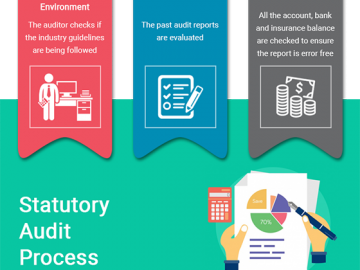
CbCR Reporting Requirement UAE

UAE has made a conscious effort toward cementing its position as a regional and global business hub and has been able to attract significant foreign direct investment. Adoption of global regulations and best practices has been at its core. UAE embraced the Base Erosion and Profit Shifting Inclusive Framework (BEPS IF) on 16 May 2018, and has since taken significant steps to implement the BEPS minimum standards (i.e., Actions 5, 6, 13, and 14) to further consolidate its regulatory framework. On 30 April 2019, the UAE MoF also issued ‘Cabinet Resolution No. 32 of 2019 on Organizing the Reports Submitted by Multinational Corporations’, setting out Country-by-Country Reporting (CbCR Reporting) compliance obligations (UAE CbCR rule) for multinational entity groups (MNE) based and/or operating in the UAE, effective for financial years commencing on or after 1 January 2019.
The Resolution introduces CbCR requirements (either filing or notification) for entities that are tax resident in the UAE, and that are part of a multinational group with consolidated revenues equal to or exceeding AED 3.15 billion (approx. EUR 764 million or USD 858 million) in the preceding financial year. CbCR Rules and Requirements are applicable to ‘financial reporting years’ starting on or after January 1st 2019. Accordingly, the CbC report must be submitted by applicable CbCR reporting companies latest by December 31st 2020.
The Resolution states in detail that any affiliated entity of an Multinational Enterprise (MNE) that is tax resident in the UAE, but is not the Ultimate Parent Entity (UPE), shall prepare and submit the CbCR on behalf of the MNE, if certain conditions are met. However, where the tax resident entity in the UAE is not an UPE, a notification in lieu of an actual filing would satisfy the CbCR requirements, as long as the MNE has filed the CbCR in the UPE’s tax jurisdiction or in a Surrogate Parent Entity’s (SPE) tax jurisdiction, and certain conditions in relation to automatic exchange of the CbCR, by such tax jurisdictions with the UAE, are fully met. Any affiliated entity of an MNE that is tax resident in the UAE, shall notify the Competent Authority (i.e. the UAE Ministry of Finance, MOF), whether it bears the capacity of an ultimate or surrogate parent entity (SPE), no later than the last day of the financial reporting year of such MNE. If such entity is not a UPE or SPE, it shall notify the Competent Authority of the identity of the entity submitting the CbCR and its tax residence, no later than the last day of the financial reporting year of such MNE.
The CbCR reporting requirements provide the much needed transparency and visibility on aggregate jurisdiction-wise information relating to the global allocation of income, taxes paid, and certain indicators of economic activity. The CbC report also provides a comprehensive list of the MNE group’s Constituent Entities (CEs) and their business activities. A focal area for CbCR is to also facilitate the automatic exchange of CbC reports between tax authorities, with a view to promote increased information sharing. Almost 90 countries have adopted CbCR so far, and there are over 2,400 bilateral relationships for the exchange of CbC reports.
The UAE CbCR rules also grant broad powers to the UAE MoF, in the context that it may request additional information from any reporting entity, to determine the accuracy and completeness of the information reported, and to validate the reasons for any missing information, including the right to enter the business premises of the reporting entity to obtain the aforementioned information.
UAE formalizing CbCR rules is an important development – sending a strong message to the international tax community about their strong commitment to adopt new legislation to combat BEPS, and to distance itself from being perceived as a tax haven jurisdiction. For most MNE groups operating in the UAE, the new rules provide flexibility, allowing for CbC reports (FY19 and onwards) to be filed in the UAE. For MNE groups with UPEs and/or APEs outside the UAE, the new rules introduce an additional notification requirement for CEs based in the UAE. The most significant impact will be felt by qualifying UAE-headquartered MNE groups that will be required to prepare and file a CbC report for the first time, as a result of the new rules. Hence it is recommended that all qualifying MNE groups review their position and ensure compliance, particularly given the hefty penalties for non-compliance. The Resolution also entails a requirement to retain effective records for 5 years following the date on which the CbCR is submitted to the Competent Authority. The aforementioned records may be kept electronically, provided it is a compliant and readable electronic format. Failure to comply with the CbCR requirements is likely to expose the UAE taxpayers concerned to stringent and varying levels of administrative penalties ranging from AED 100k to AED 1Mio.
UAE MoF may release further guidance in the coming months on several key areas, such as details of an online filing portal, notifications and CbC report filing process, and final XML specifications, if different from the OECD XML scheme. Therefore, it is strongly recommended to seek professional advice for fully comprehending the above requirements and ensure regulatory compliance.
With cut-off date quickly approaching, Quantum Auditing, having professionals with in-depth knowledge on compliance of these regulations, can facilitate in furnishing the fundamental data for the above regulatory compliance.































